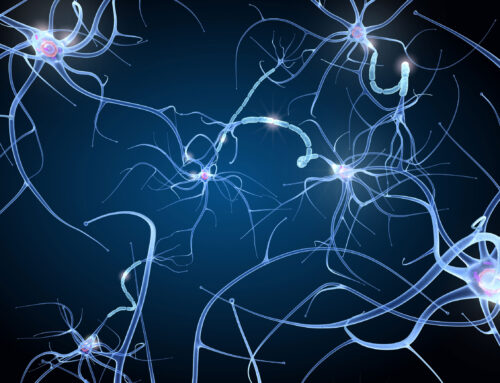Our foundation is key!
Holistic health encompasses more than just the absence of illness: It considers the full spectrum of human experiences and emphasizes the connection between body, mind, and soul.
Our focus on restoring and maintaining a balanced state of health rests on five pillars that are essential for each of us:
- Sleep
- Nutrition
- Exercise
- Social and intrapersonal connections
- Purpose/spirituality

# 1 HOT ITEM: Sleep and Restoration
If you want to enjoy your life for a long time, while being healthy and content, there’s no way around it…
Enviously, those who struggle with insomnia observe people blessed with the ability to sleep well anytime and anywhere. In the past, it was said: ‘You can sleep when you’re dead!’ However, there has finally been a huge shift, and sound sleep is now seen as the luxury it truly is for our well-being. Unfortunately that doesn’t make it any easier. Drugstores are filled with products aimed at promoting better sleep. But why is sleep so immensely important for us?
I’ll start by emphasizing it as the first pillar of health because without it, all the other pillars cannot stand well. Quality sleep is crucial for the regeneration of both body and mind. During sleep, the body repairs and renews cells, consolidates memory, and regulates the hormonal system. Stress hormones like cortisol are broken down.
Individuals with neurodivergent conditions, such as ADHD or autism, often produce more of these hormones throughout the day. Additionally, due to their sensitive perception and active minds, they frequently face challenges in their sleep patterns. As a result, they need more time to prepare their bodies and minds for rest and often have different rest requirements based on their brain structure compared to neurotypical individuals. Unfortunately, sleep is often perceived as boring or dull and postponed despite better knowledge (talking revenge bedtime procrastination).
Surprisingly, our ability to sleep well at night is influenced throughout the entire day leading up to bedtime. Factors such as early morning sun light exposure, diet, exercise, physical and emotional stress, as well as moments of rejuvenation, play a huge role. Parents of sensitive little sleepers quickly learn: ‘Sleep begets more sleep!’ If a nap is skipped, the child doesn’t sleep better but worse at night and may even wake up earlier. While not very intuitive, this phenomenon is well understood through the body’s biochemical processes.
We’d love to share more on this and similar topics in the future, so stay tuned for additional articles, feel free to subscribe to our newsletter or ask us directly!
Feel free to reach out if you have any more questions!
#2 No fuel – no progress!
Our nutrition provides fuel for both body and mind.
Dietary trends come and go—Paleo, Keto, vegan, raw, and more. However, it’s essential to recognize that balanced nutrition should be tailored to individual needs and may evolve over a lifetime. It not only supports physical health but also enhances our mental performance. Have you ever experienced the unpleasant ‘brain fog’?
Certain foods may trigger sensitivities or require specific dietary considerations in senstive individuals. Additionally, the timing and circumstances of eating play a significant role. Adopting personalized and mindful eating habits allows us to unlock our potential and enjoy life without discomfort.
The teachings of Ayurveda offer valuable insights, emphasizing individual needs and providing tailored recommendations. These principles can be adapted to Western tastes or dietary restrictions like veganism, even if Indian cuisine isn’t your preference!
#3 Move it, move it
Staying active is crucial for physical and mental fitness.
Regular physical activity supports our cardiovascular health, hormonal balance, muscle strength, and mood.
For neurodivergent individuals, exercise can effectively manage stress and regulate overstimulation, making it essential to incorporate into daily routines. Whether it’s dancing at a day rave, practicing yoga, taking nature walks, doing spinning or HIIT workouts, or any other form of movement, the key is to find enjoyable activities and engage in them consistently. Additionally, stretching, fascial training, and relaxation techniques like TRE or biofeedback can help alleviate the persistent tension often experienced by neurodiverse individuals
#4 Connect and Care
The art of being in relationships and caring for others
Maintaining social connections enhances emotional well-being and strengthens our sense of belonging. Numerous studies have confirmed this, as the exceptionally long-lived residents of the so-called Blue Zones are deeply embedded in their families and communities, even into old age. They feel connected and useful for their surrounding.
For neurodivergent individuals, building and nurturing relationships can indeed be a tad more challenging. Patience, communication skills, understanding social dynamics, and learning to set boundaries are crucial aspects that deserve closer attention when facing challenges.
Simultaneously, it’s essential to cultivate a connection with oneself. Understanding one’s own needs, boundaries, and desires is vital. For individuals with ADHD, who often focus primarily outward and may not allocate enough time for introspection, this can be a challenge.
And let’s not forget: The connection to our beloved animals and nature has multiple health benefits for us humans.
#5 Your very own Why?!
Finding Purpose/Spirituality
Spirituality doesn’t necessarily have to be religious; it’s about finding a purpose and meaning in life that goes beyond the material realm.
For neurodivergent individuals, this can also mean understanding, acknowledging, and appreciating their unique qualities and associated gifts.
Practices like meditation, breathing exercises, or keeping a journal help connect with deeper layers of the self.
In summary, holistic health is a dynamic and highly individual process.
What works for one person may not be ideal for another, and our needs change along with our life circumstances. It’s worthwhile to delve deeply into this topic and gradually invest in all areas of well-being. Changing our behavior takes time and effort, and it might feel uncomfortable initially.
That’s where we come in: We’re here to assist you in creating, adapting, and implementing a personalized routine that considers these aspects for the long term!


